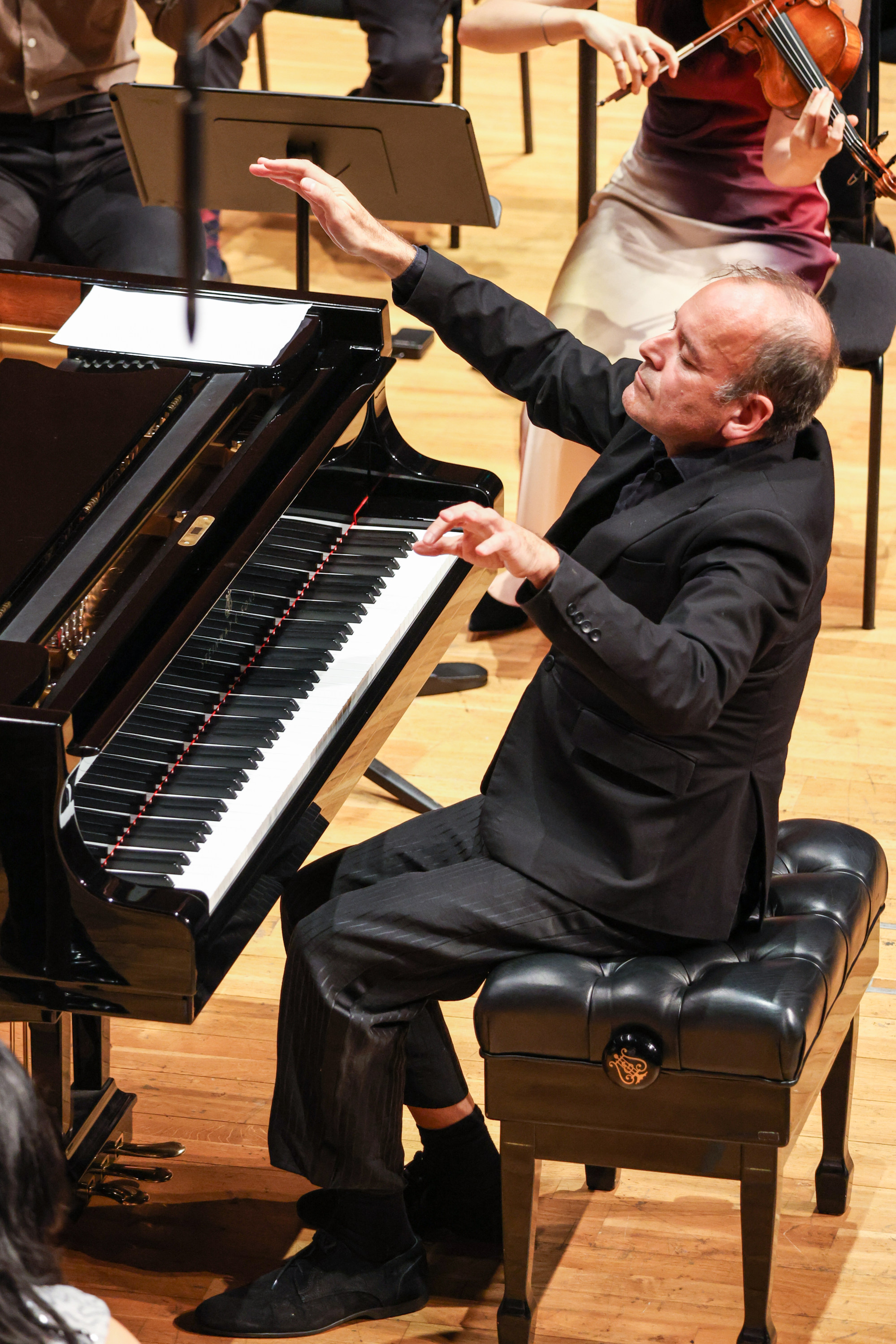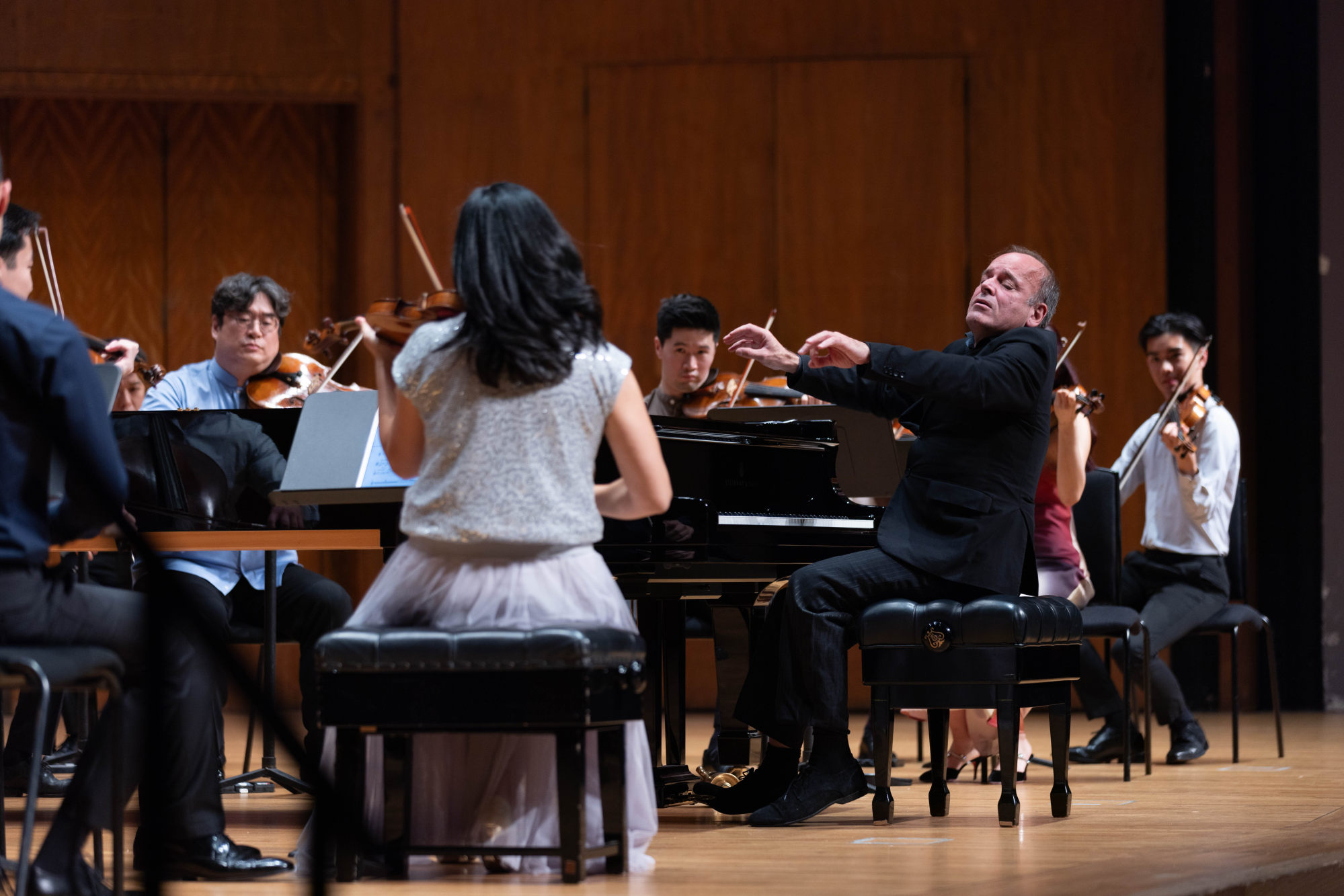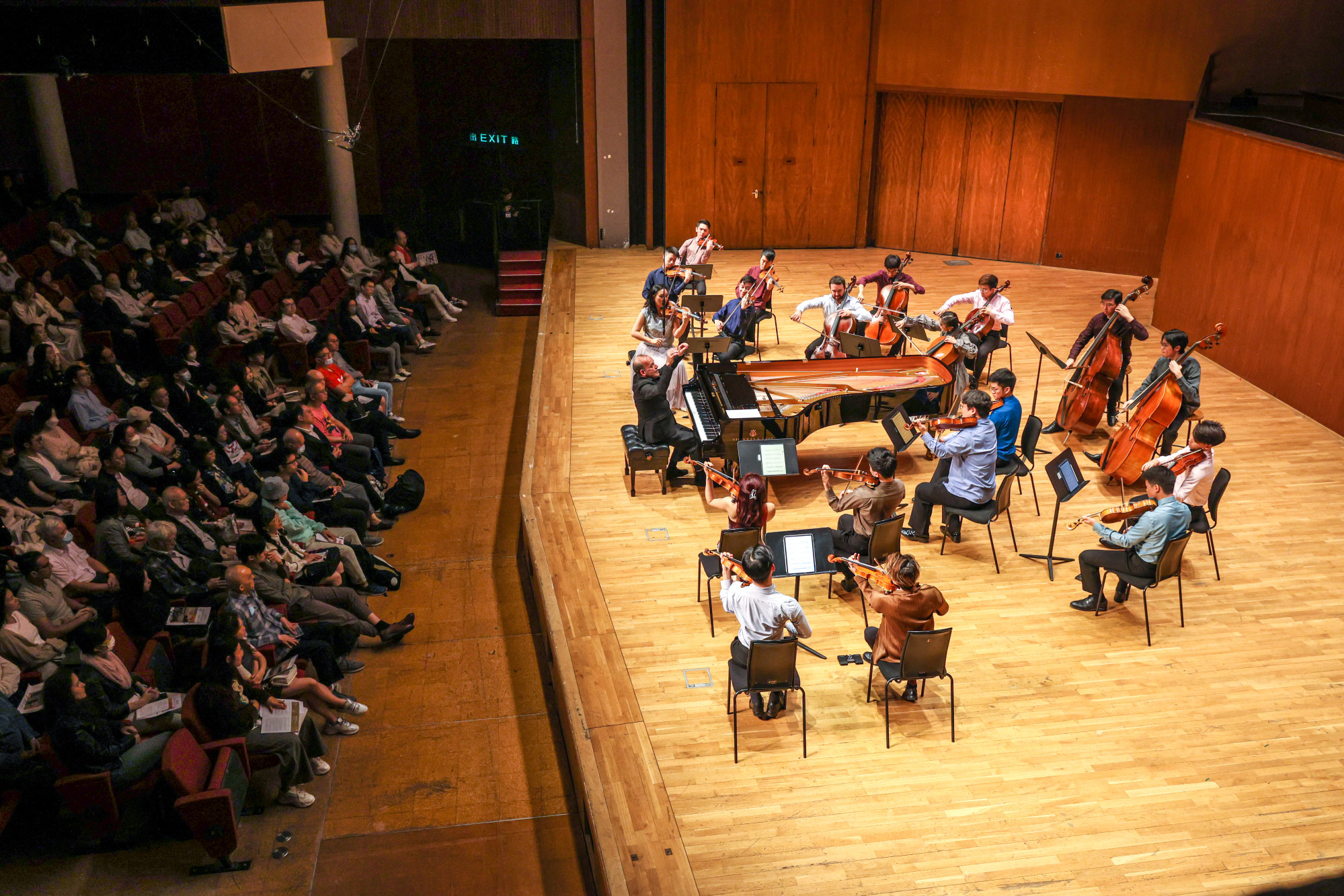Variety is the spice of life. When a new ensemble emerges and offers something beyond the customary “meat-and-two-veg” billing (a symphony preceded by an overture and concerto) of the flagship orchestras, it adds richness to the music scene.
The young players chose an unusual programme, including rarely aired gems by Grieg and Sibelius, and offered a glimpse into Estonian composer Arvo Pärt’s world of “holy minimalism”, before performing Grieg’s revered Piano Concerto with a strings-only accompaniment directed from the keyboard by award-winning French-Canadian pianist Louis Lortie.
There were plenty of hits, a few misses, and some surprises as well.
This musical ensemble plays a message of hope for the Middle East
This musical ensemble plays a message of hope for the Middle East
The odd misses can be attributed to some early tentativeness.
In the elegiac opening prelude of Carl Nielsen’s Little Suite for Strings, sailing was less than smooth for the four first violinists as they struggled to find solid tonal footing.
That said, by the time the gentle, lilting waltz of its Intermezzo movement set in, the music, in infectious triple time, moved fluidly between the string sections and things began to gel.
Canadian concertmaster Elissa Lee kept a tight rein on the ensemble’s ebb and flow throughout, and the violas especially impressed with their strong inner voice.
A collective assuredness was evident in the finale’s somewhat solemn introduction, as the ensemble’s sound became more expansive and poised, leading ultimately to a wonderfully animated Allegro with a strong chugging pulse.
‘I wanted to create’: Hong Kong Ballet choreographer Ricky Hu on his calling
‘I wanted to create’: Hong Kong Ballet choreographer Ricky Hu on his calling
The following two works by Sibelius were a highlight and the sense of joy was palatable as the Musicus Soloists continued to blossom.
The ubiquitous Grieg-like romanticism of the Finn’s short three-part Romance in C for String Orchestra was lapped up by the ensemble – they clearly showed an affinity for this musical language.
The profound calmness their playing reached towards the end of the Romance carried over into the chorale-like Andantino sections of Sibelius’ Impromptu for String Orchestra, Op. 5, a string arrangement of his last two piano miniatures. Their edgy and spirited take on the middle section waltz provided a stellar contrast.
Hong Kong arts groups back to promoting the city on overseas tours
Hong Kong arts groups back to promoting the city on overseas tours
The popularity of living Estonian composer Arvo Pärt’s compositions is often attributed to their inherent simplicity and ability to speak to listeners on a spiritual level. Judging by the silence in the auditorium, the proof was in the pudding.
The mesmerising sounds and stillness that young Hong Kong-born violinist Angela Chan produced in Pärt’s Fratres for Violin, Strings and Percussion captivated listeners.
A set of variations on a six-bar theme, Fratres (“brothers” in Latin) combines frantic activity with sublime stillness, encapsulating Pärt’s observation that “the instant and eternity are struggling within us”.
Chan was most convincing as she soared above the ensemble with her fine and focused tone, projecting much detail and clarity in her string crossings.
Guest percussionist Alvin Chan’s interjections were spot on in their spookiness as Chan continued to impress with her stylish double-stopping and ringing harmonics, all executed with precision.

The real eye-opener of the evening was Grieg’s much loved Piano Concerto in A minor with an all-strings accompaniment.
Any scepticism surrounding the performance of the hugely popular concerto in such an intimate setting was soon put to rest.
Granted, the opening cello and bass tremolo that replaced the timpani roll felt somewhat surreal. But Lortie, directing from an inward-facing piano, was ever attentive in balancing and bringing out the “missing” wind, brass and percussion voices by coaxing the appropriate volume from the string sections with his fluid hand movements.

As for drama, there was no hint of downscaling whatsoever.
Lortie never spared the horses in the solo part’s tumultuous and powerful passages of cascading octaves, while remaining ever alert in nurturing the compact string sound.
His first movement cadenza was aptly thunderous at times, although strangely percussive in places; this may have been due in part to hearing the piano in an uncustomary position.

Over a warm blanket of muted strings, Lortie left listeners spellbound in the slow movement Adagio with a heavenly sound that felt suspended in time.
As the full gamut of romantic string swells and passionate lunges alternated with Lortie’s creative and swing-filled interjections in the finale there was never a feeling of being cheated of that full orchestral backing.
It was a persuasive example of when a deviation from the norm proves both refreshing and successful.
“Musicus Fest 2023 – Louis Lortie & Musicus Soloists Hong Kong”, Concert Hall, Hong Kong City Hall. Reviewed: November 21.

